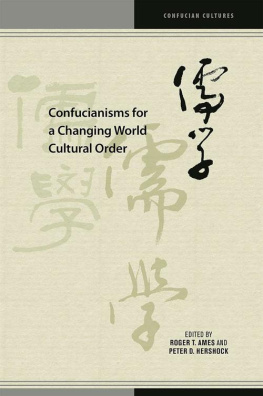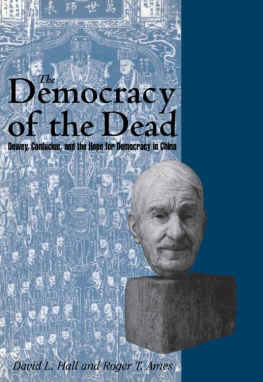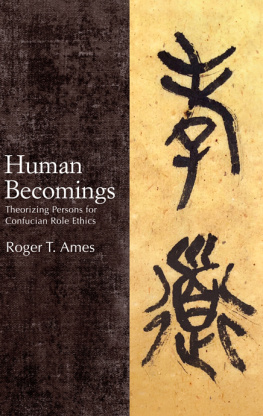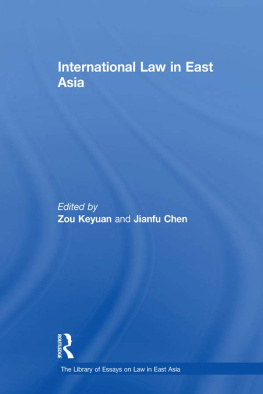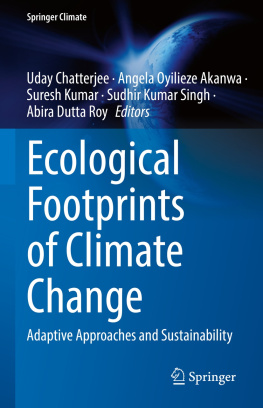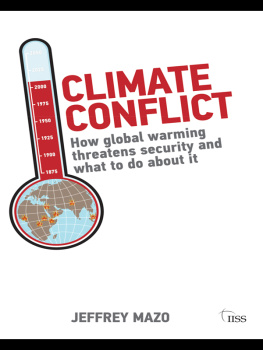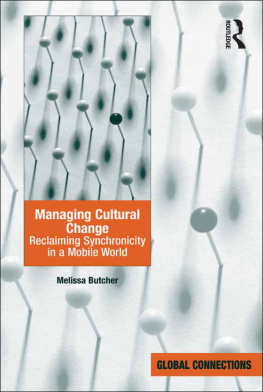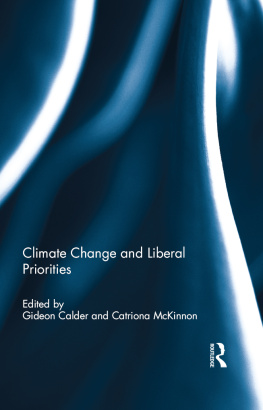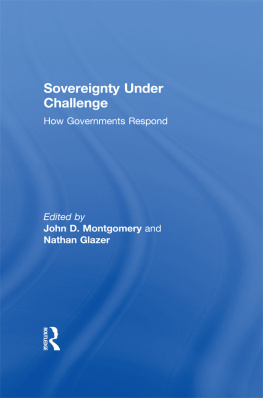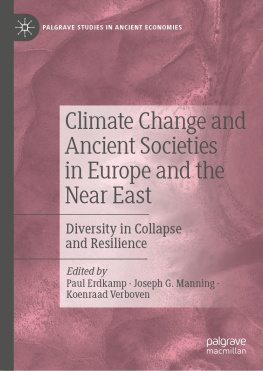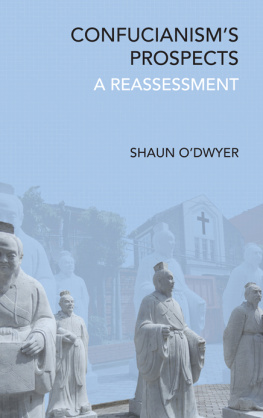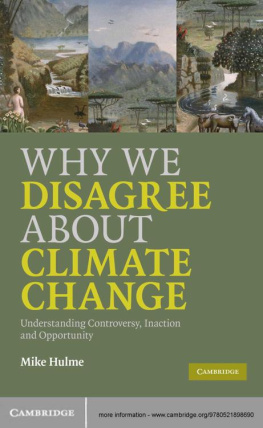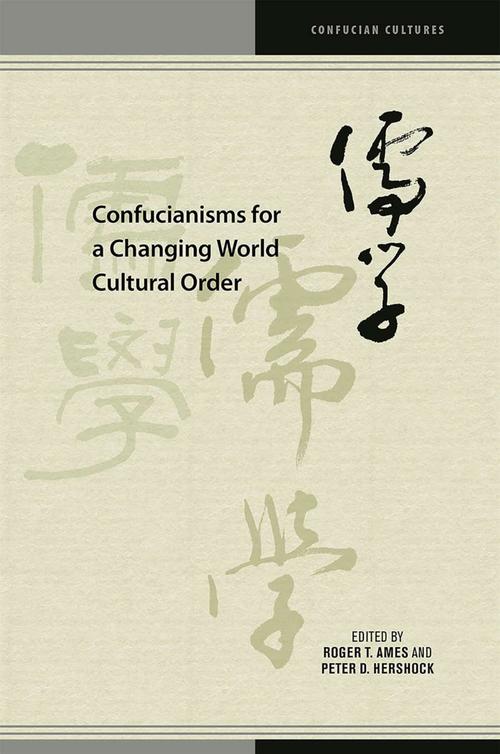iv
Copyright
2018 University of Hawaii Press
All rights reserved
Printed in the United States of America
23 22 21 20 19 18 6 5 4 3 2 1
Library of Congress Cataloging-in-Publication Data
Names: Ames, Roger T., editor. | Hershock, Peter D., editor.
Title: Confucianisms for a changing world cultural order / edited by Roger T. Ames and Peter D. Hershock.
Other titles: Confucian cultures.
Description: Honolulu: University of Hawaii Press: East-West Center, [2018] | Series: Confucian cultures | Includes bibliographical references and index.
Identifiers: LCCN 2017024231 | ISBN 9780824872588 (cloth alk. paper) Amazon Kindle 9780824874261 EPUB 9780824874254 PDF 9780824873325
Subjects: LCSH: Confucianism.
Classification: LCC BL1853 .C75 2017 | DDC 181/.112dc23
LC record available at https://lccn.loc.gov/2017024231
University of Hawaii Press books are printed on acid-free paper and meet the guidelines for permanence and durability of the Council on Library Resources.
Composition by Wanda China
Calligraphy by Peimin Ni
Introduction
Roger T. AMES and Peter D. HERSHOCK
the last quarter century has brought remarkable progress across a broad spectrum of domains. The recent worldwide recession notwithstanding, global wealth has increased at historically unprecedented rates. Medical advances have made life expectancies around the world the highest in history. The Internet and smartphone revolutions have made information almost miraculously accessible to an ever-increasing portion of the worlds people. And democracy movements across North Africa and the Middle East have raised hopes for the ideals of universal suffrage and human rights.
Yet alongside these undeniably positive effects of the contemporary processes of industrialization and globalization there have come widening gaps of wealth, income, resource use, and risk. Recognition has dawned that human activity is capable of adversely affecting such planetary-scale phenomena as the climate, amplifying the conditions for opportunity migration, and causing potentially catastrophic economic disruption. The manufacturing and consumption booms that are fueling global economic growth have accelerated environmental degradation, including urban environments; transportation advances have accentuated the likelihood of global pandemics; development-heightened appetites for energy have made recourse to high-risk fuel extraction and power-generating technologies matters of perceived national necessity; and the conditions for continued economic and political vitality have become ever more intimately keyed to those for volatility.
This perfect storm comprised of successes mixed with ever-amplifying challenges has several underlying conditions that encourage us to view our current situation as marking an era-defining shift from prioritizing the technical to giving privilege to what is ethical. First, human beings and our ways of being in the world are complicit in some immediate way for the predicaments we are facing. Second, these predicaments are not constrained by national or social boundaries. Crises such as pandemics and global warming have global reach and affect everyone regardless of nationality or status. Third, an organic relationship obtains among this set of pressing challenges, rendering them zero-sumwe either address them all or we can resolve none of them. This means that these challenges cannot be met seriatim by individual players. Rather, we are facing largely human-precipitated predicaments that can only be engaged wholesale by a world community acting in concert. Finally, the predicaments with which we find ourselves ever more powerfully confronted can only be resolved by effecting a radical change in human intentions, values, and practices.
At the same time, however, the growth dynamics of the network society and global informational capitalism are fueled by the multiplication and magnification of differences. In combination with the near ubiquitous embrace of democratic ideals that urge respect for individual voices, there is a glaring absence of a robust global culture of respectful and open deliberation. The stage is thus set for intensifying confrontations among groups and value systems, each claiming rights to sovereign conductconditions that are ill-suited to global predicament resolution. A signal result is the growing awareness of the limits of liberalism writ at global scale in a world of increasingly complex interdependencies. Corollary to this is a growing recognition of the need to consider alternatives to the bifurcation of the liberal and illiberal approaches to world order that framed the conflicts of the Cold War era and that continues to inform much of contemporary national policy-making and international relations.
In a single generation, the rise of Asia, and particularly the rise of China, has precipitated a sea change in the prevailing economic and political order of the world. In the quarter century since 1989, the Asia Pacific Economic Cooperation (APEC) forum has grown to include twenty-one Asia-Pacific nations with 40 percent of the worlds population, the GDP in the Asia-Pacific region has more than tripled, and trade in and with the region has increased by over 400 percent. The Chinese economy has grown at annual double-digit rates to overtake Japan as the second largest economy in the world, and is predicted to become the worlds largest economy at some time in the 2020s.
Asian development generally and the global impact of Chinas growth more specifically are producing seismic changes in the worlds economic order and international relations. To date, these changes have remained largely entrained with the troubling dynamics of the perfect storm noted above. But this reconfiguration of economic and political dominance nevertheless opens possibilities for cultural changes of the sort required to challenge a world cultural order that has long been dominated by a powerful liberalism, especially since this liberalism has proven impotent with respect to the global predicaments and equity issues that promise to shape the course of the twenty-first century. Challenges might be posed, for example, from the perspectives of indigenous peoples, or from religious traditions like Christianity, Islam, and Buddhism. But there is much to recommend considering the cultural resources offered by what Robert Bellah referred to as secular religions like Confucianism.

